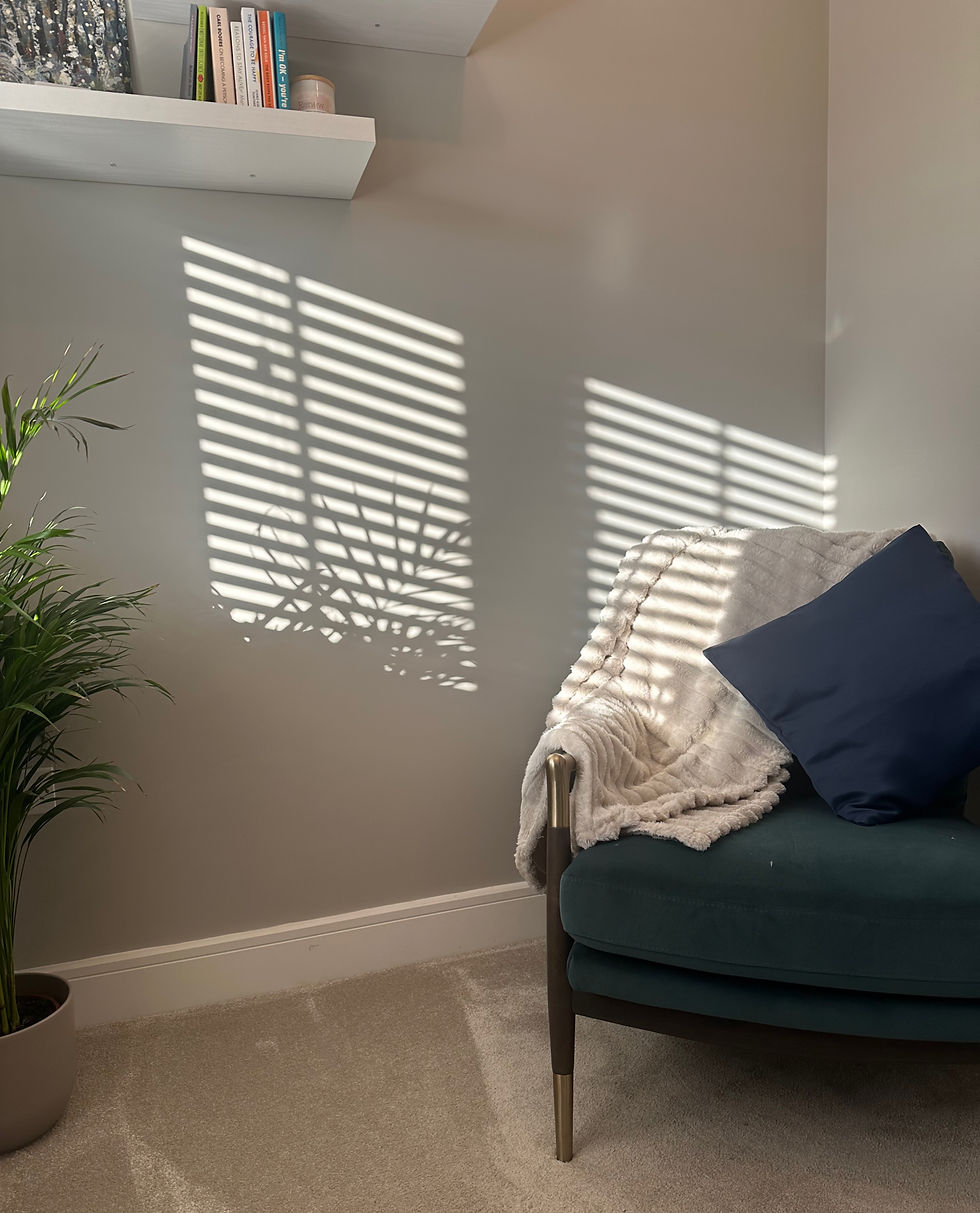The fixers guide to choosing your battles (and your peace)…
- Amy Griffin

- Feb 13, 2025
- 3 min read
For those who pride themselves on being the responsible one or the one who everyone contacts to fix their problems, I wonder how exhausting it is to constantly trying to manage everything around you?
If, like me, its deeply uncomfortable for you to see others struggle you might regularly find yourself tangled up in a problem that wasn’t really yours to solve. Take these examples….
Your friend calls you to say they are struggling and you feel responsible to fix it
Your colleague drops a ball at work and you pick it up without a second thought
Your mum is having problems with her new boyfriend and you feel the need to give her advice (and to the lazy boyfriend too!)
The line between showing concern and taking responsibility can feel impossible blurred but constantly trying to manage everything around you is exhausting. It can leave you feeling overwhelmed, anxious and in a constant state of high-alert for the next thing that might go wrong.
Do how do you let go of what isn’t yours to carry? How do you stop fighting every battle and start choosing peace instead? How do you choose your battles?

Where do you draw the line?
There is a difference between being concerned for someone and showing empathy and taking on their problems as if they were your own. Showing empathy says ‘I see you, and I care’, responsibility says ‘it’s up to me to take the pain away and fix this’.
The challenge arises when we assume too much responsibility for things outside of our control—whether it’s a loved one’s happiness, a workplace conflict, or the choices someone else is making. We overburden ourselves, believing that if we just try harder, we can prevent bad things from happening. But the truth is, no amount of effort can control things that were never ours to manage in the first place.
Carrying other people’s burdens not only wears you down, but it also takes the opportunity away for that person to grow. When we constantly step in to fix things, we unintentionally send the message that others aren’t capable of handling their own challenges. Instead of fostering independence and resilience, we reinforce dependence. In some cases, we enable.
"What’s mine vs. what’s theirs" exercise
To help look at what is truly in your control and what isn’t, try this exercise:
Grab a piece of paper and draw two columns.
On the left side, write "Mine." List everything that is directly within your control: your thoughts, actions, emotions, choices, and responses.
On the right side, write "Theirs." Here, list things that belong to others: their emotions, choices, reactions, and responsibilities.
Take a step back and reflect. Are you carrying things that don’t belong to you? Are you trying to control something outside your reach?
You may be surprised at how much you’ve been holding onto unnecessarily. Letting go of what’s not yours doesn’t mean you stop caring—it means you stop carrying the weight of things you cannot change.
Empowering yourself to let go
Recognising what isn’t yours to hold is the first step in finding peace. But letting go? That takes practice. Here are some ways to shift your mindset:
Pause before stepping in. The next time you feel the urge to fix, ask yourself: Is this my responsibility? Or is it simply my concern?
Use grounding phrases. Try saying to yourself, “This isn’t mine to carry,” or “I trust them to handle their own challenges.”
Set emotional boundaries. It’s okay to care without over-identifying with someone else’s struggles. Boundaries help protect your energy and emotional well-being.
Redirect your energy. Instead of over-functioning for others, focus on your own well-being and growth. Channel your efforts into areas where you truly have influence—your own choices, your own healing, and your own peace.
Practice radical acceptance. Accepting that you cannot control everything is a powerful shift. It allows you to move from frustration to peace, from resistance to surrender.
Choosing peace over control
Choosing peace doesn’t mean disengaging from life or ignoring problems. It means being intentional about where you invest your energy. It means recognising that your worth is not tied to how much you do for others or how many problems you solve.
You doen’t find peace by controlling everything around you. You find it by recognising what’s truly yours to hold and allowing the rest to be where it belongs. Peace comes from within, not from external control. The more you practice this, the more space you create for your own healing, joy, and balance.
So, what’s yours to hold today? And what are you ready to set down? The choice is yours.



Comments